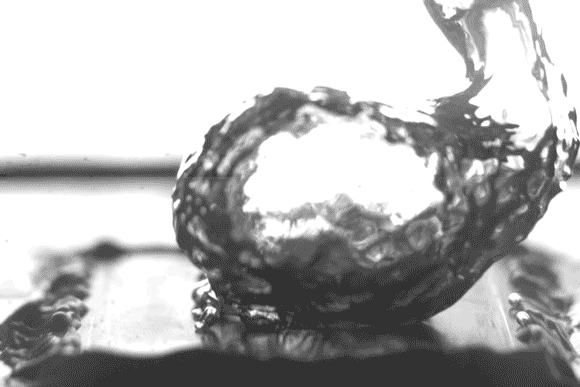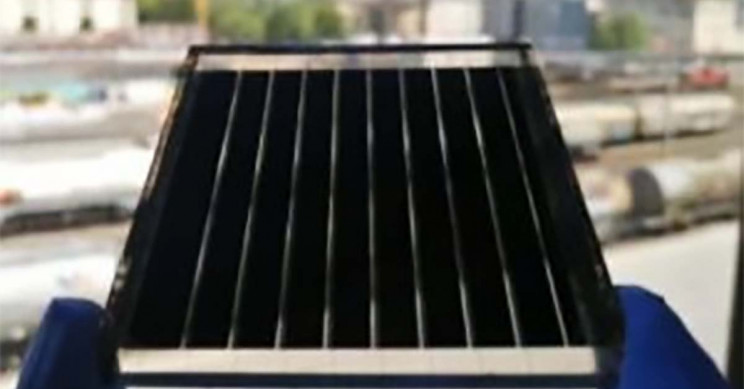Tank manufacturing leads the charge as the manufacturing industry experiences a dramatic transformation. Smart technology integration along with advanced monitoring systems, has transformed tank design, construction and maintenance at a fundamental level. Tank manufacturer innovation leads this evolution by delivering enhanced industry efficiency and safety standards.
What You’ll Discover in This Guide
- Inside the Smart Manufacturing Revolution
- Smart Technology Applications
- Impact on Industry Standards
- The Future of Tank Manufacturing
- Smart Technology Benefits
- Implementation Strategies
- Market Evolution and Future Outlook
Inside the Smart Manufacturing Revolution
The Rise of IoT Integration
The Internet of Things (IoT) serves as the foundational technology for smart innovations in tank manufacturing. The monitoring and maintenance of tanks is being revolutionized through networks of connected sensors and devices. Market analysts predict that the tank-level monitoring system market will expand from $1.1 billion in 2024 to $1.17 billion in 2025 while maintaining a strong compound annual growth rate (CAGR) of 6.3%.
This growth isn’t happening in isolation. Advanced monitoring systems see significant demand from process industries such as chemical plants and pulp & paper facilities alongside steel mills and power generation stations. The primary motivation? Enhanced safety protocols and improved operational efficiency.
AI-Driven Quality Control
The field of tank manufacturing experiences revolutionary changes in quality control processes because of Artificial Intelligence technologies. Smart systems now use machine learning algorithms to:
- Detect microscopic defects in tank walls
- Monitor welding quality in real-time
- Predict maintenance needs before failures occur
- Optimize material usage and reduce waste
Real-Time Monitoring and Management
Modern tank manufacturing facilities are equipped with sophisticated monitoring systems that provide:
- Continuous pressure monitoring
- Temperature regulation
- Structural integrity assessment
- Environmental condition tracking
Smart Technology Applications
Advanced Materials Testing
The use of smart technology has revolutionized testing procedures for materials in tank manufacturing processes. Today’s advanced systems execute non-destructive testing with higher precision and conduct real-time material composition analysis while predicting material properties under different conditions and maintaining industry-standard compliance. The new materials testing methods have led to fewer industrial defects while enhancing product quality standards.
Automated Production Systems
Automation integration has led to substantial advancements in manufacturing precision and efficiency. Automation benefits feature minimized human mistakes in essential operations alongside faster production rates and uniformity while making better use of resources and improving safety for employees. Substantial cost savings combined with enhanced product quality enable these manufacturing enhancements to meet or exceed industry standards.
Energy Management Innovation
Smart technology’s primary use emerges in the field of energy management systems. The energy storage sector has experienced remarkable expansion with utility-scale battery energy storage systems (BESSs) achieving significant milestones. The active BESSs in the United States reached a cumulative nameplate power capacity of 8,842 MW and a total energy capacity of 11,105 MWh in 2022. The achievement serves as proof of efficient tank manufacturing becoming a critical component of renewable energy infrastructure development.
Impact on Industry Standards
Quality Assurance Revolution
Major players in the tank-level monitoring system market show increasing dedication to advanced IoT solutions alongside AI-driven technologies. The combination of advanced innovations enables real-time monitoring with unmatched precision through GPS tracking and complete management capabilities. The adoption of new advanced technologies has transformed quality assurance practices throughout the tank manufacturing process.
The advancement of smart technology has improved quality assurance standards by integrating automated inspection systems with real-time quality monitoring and digital documentation tracking. The systems identify potential issues before they escalate into serious problems which ensures compliance with or surpassing industry standards for every tank. Predictive maintenance scheduling has led to a substantial decrease in equipment downtime while simultaneously lengthening manufacturing equipment life spans.
Safety Enhancements
The implementation of smart technology has revolutionized modern safety protocols. Advanced leak detection systems offer instant notifications when potential problems are detected. Automated emergency responses enable fast containment of problems which prevents escalation and remote monitoring capabilities provide operators with the ability to maintain oversight from any location. Worker safety measures throughout the manufacturing process have significantly improved because of these advancements.
Sustainability Improvements
Smart manufacturing processes now provide sustainability as another important benefit. Manufacturers who use precise measurements alongside optimized cutting patterns can achieve better resource utilization while simultaneously reducing environmental impact through material waste reduction. Smart energy management systems optimize power consumption during manufacturing activities which leads to lower expenses and decreased environmental damage.
The Future of Tank Manufacturing
Industry 4.0 Integration
Modern tank manufacturing now requires integration with Industry 4.0 principles. All systems achieve full digital integration while predictive maintenance protocols operate alongside intelligent automation of routine tasks and data-driven decision-making processes. Modern manufacturing technologies enabled producers to reach unprecedented efficiency levels without compromising their established quality standards.
Smart Technology Benefits
Operational Efficiency
The application of smart technology in tank manufacturing yields significant measurable operational advantages. Businesses that adopted advanced systems achieved better production speed along with enhanced resource allocation and quality control while improving cost management. Real-time monitoring and adjustments in manufacturing processes bring about reduced waste production while enhancing product consistency and enabling improved customer satisfaction levels.
Customer Satisfaction
The implementation of enhanced manufacturing processes delivers products of better quality along with quicker delivery schedules. Smart technology integration provides enhanced customization options that enable manufacturers to fulfill specific customer requirements while maintaining production efficiency. The combination of increased flexibility and enhanced product reliability enables manufacturers to sustain their competitive advantage within today’s challenging marketplace.
Competitive Advantage
By integrating smart technology ,businesses achieve multiple competitive benefits. Companies experience improved industry reputation and increased customer loyalty alongside their expanded market share and improved profit margins. Market differentiation now depends on delivering quality products reliably alongside efficient operational practices.
Implementation Strategies
Assessment and Planning
Comprehensive planning stands as the foundational step for successful smart technology implementation in tank manufacturing. The implementation process demands a complete needs analysis together with technological assessment, ROI calculation and development of a precise implementation schedule. Businesses need to thoroughly assess their existing procedures to pinpoint areas that will benefit most from smart technology enhancements.
Training and Integration
Effective training and integration programs provide the necessary foundation for transitioning to smart manufacturing systems. New technology delivers the greatest benefits when staff receive proper training and when implementation occurs in stages to maintain operational stability. When planning system integration organizations need to consider current requirements alongside future scalability to ensure new technology can respond to evolving market demands.
Monitoring and Optimization
Smart system optimization through consistent monitoring remains essential for sustained success. Through performance tracking systems we can pinpoint areas that need enhancement but keeping systems up-to-date through regular updates maintains efficiency. Operator and maintenance staff feedback implementation enables process and procedural refinement and ensures consistent manufacturing operation enhancements.
Emerging Technologies and Future Outlook
Emerging technologies will drive the future development of tank manufacturing. Advanced robotics systems continue to develop increased sophistication along with 3D printing applications which create new opportunities for prototyping and small-batch production. New operator training programs utilize virtual reality which simplifies the training process while blockchain tracking solutions enhance supply chain transparency and product verification.
To fully leverage smart technology advantages organizations must establish a detailed digital transformation roadmap. The roadmap needs workforce training plans and development strategies along with solid cybersecurity measures while measuring success through clear metrics and maintaining flexibility for future technological innovations. Manufacturers who achieve the greatest success will be those who quickly embrace new technologies without compromising their quality standards.
Navigating the Path Forward
The tank manufacturing sector will keep advancing through continuous technological developments in the future. Manufacturers will gain access to highly advanced systems for quality control and process optimization as artificial intelligence and machine learning technologies further develop. The continuous technological evolution creates fresh avenues for expanding businesses and fostering innovations while establishing enhanced quality and efficiency benchmarks.
Tank manufacturing market developments represent wider industrial shifts towards digital transformation and automated systems. Leading companies within the industry have begun implementing advanced artificial intelligence systems such as deep learning defect detection tools and autonomous manufacturing procedures. The advances in the field indicate that future innovations will intensify their focus on automated systems and predictive functionalities.
The implementation of smart technology in tank manufacturing has become essential for businesses that want to maintain their competitive edge in the global market. The quality, efficiency, and safety benchmarks of the industry will keep advancing as more manufacturers adopt these technologies. Firms that adopt smart technology today gain immediate operational enhancements while building a foundation for thriving in tomorrow’s technology-focused world.







